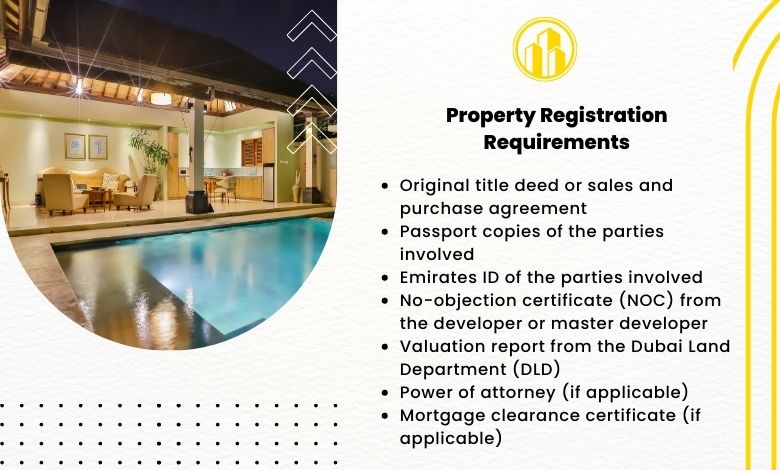A Comprehensive Guide to Property Registration in UAE

Property registration in UAE is a mandatory legal requirement for all property transactions. Whether buying, selling, or leasing property in the UAE, you must register the transaction with the relevant authorities. Property registration is a complex process that involves various steps, requirements, and legal implications. This guide provides a comprehensive overview of property registration in the UAE to help you navigate the process smoothly.
Property Registration Process:
The property registration process in UAE involves the following steps:
- Obtaining a no-objection certificate (NOC) from the developer or master developer
- Receiving a valuation report from the Dubai Land Department (DLD)
- Paying the registration fee and transfer fee
- Signing the sale and purchase agreement
- Registering the transaction with the Dubai Land Department (DLD) or the Abu Dhabi Municipality (ADM)
- Receiving the title deed and writing it with the relevant authority
Property Registration Requirements:
To register a property transaction in UAE, you need to provide the following documents:
- Original title deed or sales and purchase agreement
- Passport copies of the parties involved
- Emirates ID of the parties involved
- No-objection certificate (NOC) from the developer or master developer
- Valuation report from the Dubai Land Department (DLD)
- Power of attorney (if applicable)
- Mortgage clearance certificate (if applicable)
Property Registration Fees:
The property registration fees in UAE vary depending on the type and value of the property. The costs include the registration fee, transfer fee, and valuation fee. The registration fee is typically 4% of the property value, while the transfer fee is 2%. The valuation fee is a fixed amount depending on the type of property.
Legal Implications of Property Registration:
Property registration has various legal implications, including:
- Proof of ownership: Property registration provides proof of ownership, which is essential for lawful purposes.
- Protection of rights: Property registration protects the rights of property owners and ensures that they can exercise their legal rights without any hindrance.
- Avoidance of legal complications: Property registration helps avoid legal complications and disputes that may arise without proper documentation.
Read More About Understanding UAE Property Laws: A Comprehensive Guide
FAQs related to Property registration in UAE:
Q. Is property registration mandatory in UAE?
A. Yes, property registration is mandatory for all property transactions in UAE.
Q. What are the documents required for property registration in UAE?
A. The documents required for property registration include the original title deed or sales and purchase agreement, passport copies of the parties involved, Emirates ID of the parties involved, no-objection certificate (NOC) from the developer or master developer, valuation report from the Dubai Land Department (DLD), power of attorney (if applicable), and mortgage clearance certificate (if applicable).
Q. What is the property registration fee in UAE?
A. The property registration fee varies depending on the type and value of the property. The costs include the registration fee, transfer fee, and valuation fee.
Q. What are the legal implications of property registration in the UAE?
A. The legal implications of property registration include proof of ownership, protection of rights, and avoidance of legal complications.
Conclusion:
Property registration in UAE is a mandatory legal requirement for all property transactions. The process involves various steps, conditions, fees, and legal implications. By following the guidelines in this guide, you can navigate the property registration process smoothly and ensure compliance with regulations. Whether you are buying, selling, or leasing property in UAE, property registration is a crucial step in the process that must be completed to ensure a smooth and legally compliant transaction.




